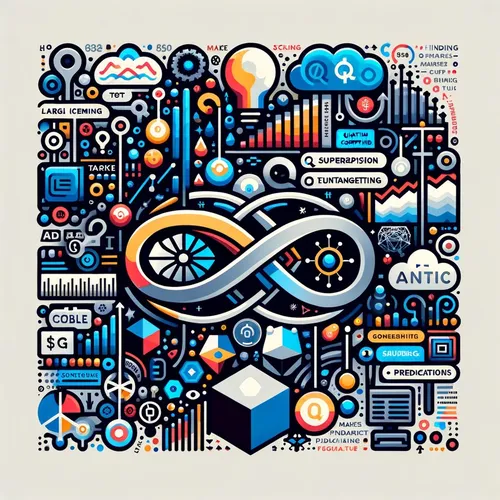Silicon Quantum Leap: CMOS Qubits Shatter Manufacturing Barriers
- Author
- Quiet. Please
- Published
- Wed 17 Sep 2025
- Episode Link
- https://www.spreaker.com/episode/silicon-quantum-leap-cmos-qubits-shatter-manufacturing-barriers--67795769
This is your Quantum Market Watch podcast.
Hello, I'm Leo, and this is Quantum Market Watch. Just yesterday, Digital Realty and Oxford Quantum Computing partnered with NVIDIA to launch the first quantum-AI data center in New York City. But today, I want to talk about something even more groundbreaking that happened just two days ago.
On September 15th, Quantum Motion delivered the industry's first full-stack silicon CMOS quantum computer to the UK's National Quantum Computing Centre. Now, you might be thinking, another quantum computer, so what? But listen closely - this isn't just another quantum computer. This is built using standard silicon CMOS technology, the same technology that powers your smartphone, your laptop, every digital device around you.
Picture this: I'm standing in a traditional quantum lab, surrounded by dilution refrigerators humming at temperatures colder than deep space, laser systems that cost more than luxury cars, and vacuum chambers that would make NASA jealous. Now imagine walking into a room where quantum computing runs on chips manufactured in the same fabs that produce billions of conventional processors. That's the revolution Quantum Motion just delivered.
This silicon breakthrough matters because it demolishes the biggest barrier to quantum adoption - manufacturing complexity. While IBM pushes superconducting qubits and IonQ perfects trapped ions, Quantum Motion chose a different path entirely. They're leveraging the sixty-year-old semiconductor manufacturing ecosystem that already exists.
Speaking of IonQ, they've been busy this week too. Just today, they announced plans to acquire Vector Atomic, a quantum sensing pioneer, and yesterday completed their acquisition of Oxford Ionics. These moves signal something profound - the quantum industry is consolidating around specific use cases, and sensing is becoming the early winner.
But here's where it gets fascinating. Japan declared 2025 the first year of quantum industrialization, and with McKinsey projecting the quantum market to hit 100 billion dollars by 2035, we're witnessing the birth of an industry that will reshape everything from drug discovery to climate modeling.
The silicon CMOS approach could democratize quantum computing in ways we've never imagined. Instead of building quantum computers in specialized facilities with exotic materials, we could potentially manufacture them in existing semiconductor fabs worldwide. That's not just scaling production - that's unleashing quantum computing into the mainstream manufacturing ecosystem.
The implications ripple through every sector. Financial institutions could run optimization algorithms without building quantum labs. Pharmaceutical companies could simulate molecular interactions using quantum chips embedded in their existing data centers. The barrier between classical and quantum computing doesn't just lower - it disappears entirely.
This is Leo reminding you that quantum superposition isn't just about qubits existing in multiple states - it's about our entire technological future existing in multiple possibilities simultaneously.
Thank you for listening to Quantum Market Watch. If you have questions or topics you'd like discussed, email me at [email protected]. Don't forget to subscribe, and remember, this has been a Quiet Please Production. For more information, visit quietplease.ai.
For more http://www.quietplease.ai
Get the best deals https://amzn.to/3ODvOta
